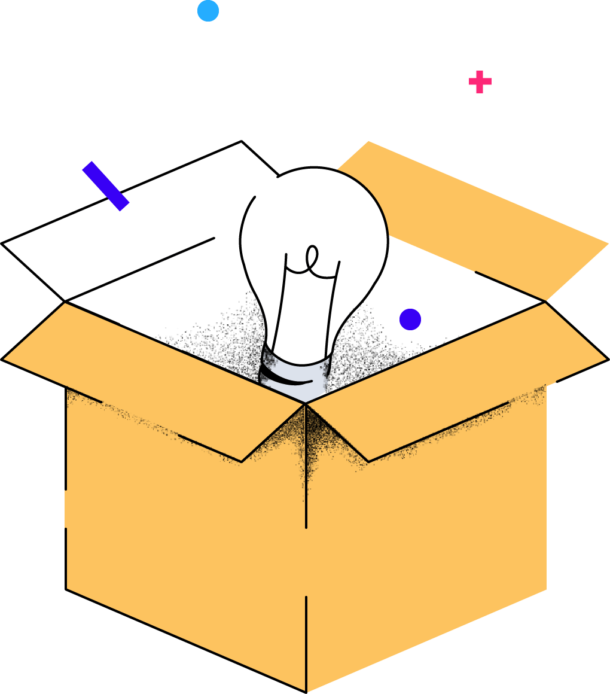Table of Contents
Introduction
The Importance of Preparation
Top Common Interview Questions and Answers
Handling Tough Interview Questions
The Importance of Utilizing a Job Search Template for Interview Success
Conclusion
Introduction
The Role of Interview Questions
Understanding the most common interview questions is essential for any job seeker. These questions form the foundation of most interview processes and provide a baseline for interviewers to assess candidates’ qualifications, experiences, and fit for the role. Preparing for these questions allows you to respond confidently and effectively, showcasing your suitability for the position.
Why Interview Questions Matter
Interview questions are designed to evaluate various aspects of a candidate, from technical skills to cultural fit. Knowing how to answer these questions can make the difference between receiving a job offer and being passed over. Mastering interview questions and answers demonstrates your preparedness and can significantly boost your confidence during the interview.
Types of Common Interview Questions
Common interview questions typically fall into several categories:
- Behavioral Questions: Focus on past experiences and how you’ve handled specific situations.
- Situational Questions: Present hypothetical scenarios to assess problem-solving skills.
- Technical Questions: Evaluate your specific knowledge and expertise in the field.
- General Questions: Include inquiries about your background, strengths, weaknesses, and career aspirations.
Understanding these categories helps you tailor your preparation to address each type effectively.

The Importance of Preparation
Research the Company
Thorough preparation is key to answering common interview questions effectively. Research the company’s history, mission, values, and recent achievements. Understanding the company’s culture and goals helps you tailor your answers to align with their expectations. This demonstrates your genuine interest in the role and the organization.
Practice Your Answers
Practicing your answers to common interview questions helps you articulate your thoughts clearly and confidently. Conduct mock interviews with a friend or mentor to simulate the interview environment. Recording your responses and reviewing them can also help you identify areas for improvement in your delivery and content.
Review the Job Description
Carefully reviewing the job description allows you to understand the key qualifications and responsibilities required for the role. Tailor your answers to highlight how your skills and experiences match the job’s requirements. This shows the interviewer that you have a clear understanding of the position and are well-prepared to fulfill its duties.
Top Common Interview Questions and Answers
Tell Me About Yourself
One of the most common interview questions, “Tell me about yourself,” often serves as an icebreaker. Craft a concise, engaging response that highlights your professional background, key achievements, and what makes you a strong fit for the role. Focus on your most relevant experiences and how they align with the job you’re applying for.
Why Do You Want to Work Here?
Interviewers ask this question to gauge your interest in the company and whether you’ve done your research. Provide a well-researched answer that highlights the company’s values, culture, and recent achievements. Explain how your skills and career goals align with the company’s mission and how you can contribute to its success.
What Are Your Strengths and Weaknesses?
Discussing strengths and weaknesses is a common part of interview questions and answers. Choose strengths that are relevant to the job and provide examples of how you’ve demonstrated them in past roles. When addressing weaknesses, be honest but also discuss how you’re working to improve them. This shows self-awareness and a commitment to personal growth.
Can You Describe a Challenge You Faced and How You Overcame It?
Behavioral questions like this one are common in interviews. Use the STAR method (Situation, Task, Action, Result) to structure your answer. Describe a specific challenge, your role in addressing it, the actions you took, and the positive outcome that resulted. This approach provides a clear, concise response that highlights your problem-solving abilities.
Where Do You See Yourself in Five Years?
This question aims to understand your long-term career aspirations and whether they align with the company’s goals. Provide an answer that demonstrates your ambition and commitment to professional growth. Mention how the position you’re applying for fits into your career plan and how you hope to contribute to the company’s success over the long term.
Handling Tough Interview Questions
Why Should We Hire You?
This is one of the tougher interview questions that can catch candidates off guard. To answer effectively, summarize your top qualifications, relevant experiences, and key achievements. Emphasize how your skills and background make you uniquely suited for the role and how you can add value to the company.
What Is Your Biggest Failure?
Discussing failures can be challenging, but it’s a common interview question designed to assess your resilience and learning ability. Choose a failure that isn’t a core aspect of the job and explain what you learned from the experience. Highlight how you’ve applied these lessons to improve your performance in subsequent roles.
How Do You Handle Stress and Pressure?
Employers ask this question to evaluate your coping mechanisms and ability to maintain performance under pressure. Provide examples of stressful situations you’ve successfully navigated in the past. Describe the strategies you use to manage stress, such as prioritization, time management, and seeking support from colleagues.
Give an Example of a Time You Disagreed with a Team Member
This tough interview question assesses your conflict resolution skills and ability to work in a team. Use the STAR method to structure your response. Describe a specific disagreement, your approach to resolving it, the actions you took to find a compromise, and the positive outcome that resulted from your efforts.
The Importance of Utilizing a Job Search Template for Interview Success
An organized approach to your job search can significantly improve your chances of success. The Job Tracking Spreadsheet is designed for individuals who are serious about finding the right job. It simplifies the process by providing an easy data entry system and automatically visualizing key data about your job search on a dashboard.
The job search template helps you manage your job applications efficiently by tracking your submissions, interview schedules, and follow-up tasks. It highlights important deadlines, such as upcoming application cut-offs and interview preparations, ensuring you stay on top of your job search. This level of organization allows you to focus on preparing for interviews and honing your responses to common interview questions.
How to Implement the Job Search Template
To start using the job search template, download it and begin entering your job search details. The template will provide a clear overview of your progress, helping you identify areas where you can improve. By visualizing your data, the template makes it easy to see which applications need follow-ups and which interviews are approaching. This comprehensive tool streamlines your job search efforts, making it easier to stay organized and prepared for every opportunity.
Conclusion
Preparing for the most common interview questions is crucial for any job seeker aiming to make a strong impression. By understanding the types of questions, practicing your answers, and effectively managing tough interview questions, you can boost your confidence and performance. Utilizing tools like a job search template can further streamline your preparation and keep you organized throughout your job search. With these strategies, you’ll be well-equipped to tackle any interview and move closer to landing your dream job.





0 Comments